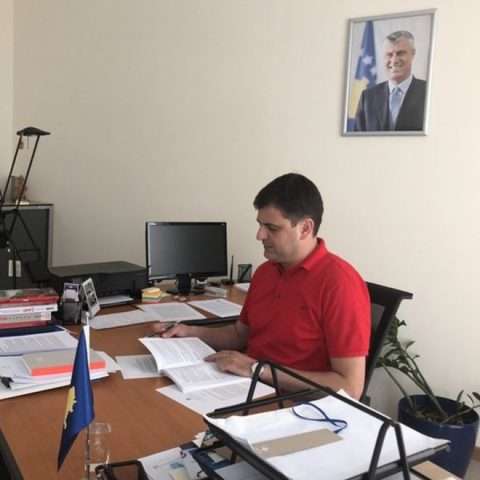Exchanging Liaison Officers
Kosovo and Serbia reached the Agreement on Exchanging Liaison Officers on 31 May 2013. The aim was to establish the relations between them, by facilitating the communication and solving everyday problems that might appear.
They agreed to have the liaison offices located inside the premises of EU delegations in both countries. This was the first time for Kosovo and Serbia to exchange official representatives.
Following the agreement, Valdet Sadiku was appointed as a Liaison Officer in Belgrade and Dejan Pavicevic as a Serbian Liaison Officer in Pristina.
The agreement presents an important step forward in the process of normalization of relations between Kosovo and Serbia and in their path to European Union integration, having in mind the fact that developing good neighborly relations is among key European standards for aspiring countries.
One year later, on 14 November 2014, Kosovo and Serbia set specific rules and modalities for the visits of Kosovo officials to Serbia and vice versa. Accordingly, they decided that:
- Respective parties will notify visits of their officials to the other party; and that
- Notification is needed for the following categories of officials:
The First Group– president, prime minister, deputy prime ministers, speaker of the parliament and ministers of internal affairs, foreign affairs and defense.
The Second Group– all other ministers, deputy speakers of the parliament, directors of governmental offices and security-related agencies, presidents of the constitutional and supreme courts, state prosecutor and other persons, such as religious leaders, that are under a regime of close protection.
- Deadlines run regardless of working or non-working days, but notifications must be sent during office hours (Mon- Fri until 5 pm);
- In case of an emergency that requires immediate travel, the two LOs can agree on Ad Hoc arrangements;
- All possible amends to programs of visits must be done at least 24 hours prior to the visit.
From December 2014, they could organize and manage all official visits from one to the other.
Parties have also agreed to expand the number of Liaison Offices’ staff. The current offices inside the premises of EU delegations have limited space, but Serbia refused to set up new offices outside of these premises. This according to them, could eventually imply a form of recognition of the representatives of Kosovo. Therefore, parties never managed to establish new offices.
Although Kosovo and Serbia exchanged liaison officers many years ago, they did not produce any concrete effects in facilitating direct communication between Pristina and Belgrade. Their role in fact, is greatly minimized and they have failed to expand cooperation between the two countries or to help solve the problems faced by citizens on both sides. A good aspect of the presence of Kosovo’s liaison officer in Serbia however, remains the fact that a better and more direct communication with foreign embassies and civil society organizations in Belgrade is ensured .
Among other issues, parties could not agree on the appearance of the official seals and Liaison Offices are still operating without them.
Kosovo insisted that the stamp should be the same as of Kosovo`s diplomatic missions across the world, with the Republic of Kosovo coat of arms and outline text which reads: “Liaison Office of the Republic of Kosovo in Serbia”. While Serbia, was determined to have the stamps with no symbols and their outline text reads “Liaison Office in Pristina” and the “Liaison Office in Belgrade”.


